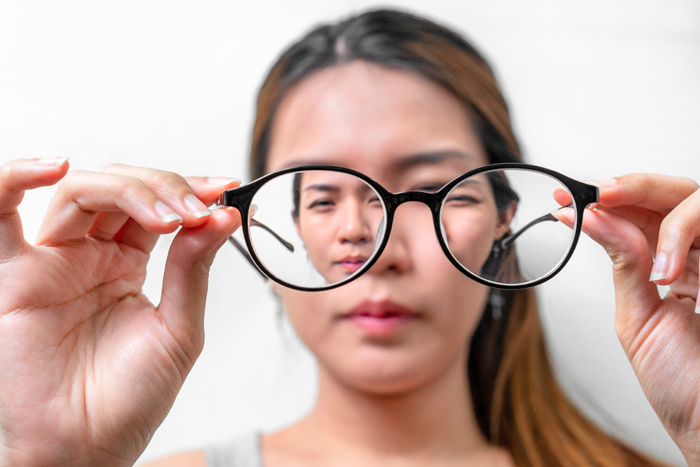Squint Eye Treatment in Koramangala, Bangalore
Squint, also known as strabismus, occurs when the eyes do not align properly. While one eye turns upwards, inwards, outwards, or downwards, the other focuses on a single point. It can happen all of the time or just on occasion.
What is Squint?
A Squint is an eye misalignment in which the two eyes are pointing in opposite directions. For others, the misalignment may be permanent, and for others, it may occur only occasionally. The eye may be turned inward, outward, upward, or downward in either direction. If the infant is not handled promptly, a disorder called Amblyopia (lazy eyes) develops, which ultimately results in irreversible vision loss.

What are the Symptoms of Squint?
The symptoms of Squint are as follows:
- Both or one of your eyes might be pointing in various directions.
- A child's vision may be impaired in one or both eyes.
- In bright sunlight, children with squints will close one eye.
- Children may experience double vision or have difficulty visualizing. When using their eyes together, some children tilt or shift their head and face in a specific direction.
- When your child is out in bright sunlight, he can squint one eye or turn his head to use both eyes.
- It may also cause Amblyopia, which is the loss of vision in the misaligned eye.
- Intermittent squinting is common in newborn babies, but it fades by two months and disappears four months as the baby's vision develops. Real strabismus, on the other hand, is something that most children never outgrow.
What Causes Squint?
The causes of Squint are as follows:
- Heredity
- Cataracts, glaucoma, corneal scars, optic nerve disease, refractive errors, eye tumors, and retinal disease, among other things, can severely impair your vision
- Eye muscle weakness or a problem with the nerves in the eye muscles
- Accidents
When Should You Consult a Doctor?
If you have symptoms such as a lazy eye, blurred vision, or an infection, you should see a doctor right away.
Also, if you find any changes (even the tiniest ones) in your child's eye alignment or vision, seek medical help right away. Observe whether your child sits close to the mirror while watching TV or carries books closer to the eyes while reading or learning to detect vision changes.
Request an appointment at Apollo Hospitals
Call 1860 500 2244 to book an appointment
What are the Treatment Options for Squint?
Prompt treatment decreases the risk of complications like Amblyopia or lazy eye. The younger the patient is, the more successful the procedure is.
There are several treatment services available:
- If the Squint is caused by hypermetropia or long-sightedness, glasses will generally fix it.
- Wearing an eye patch over the good eye will help the other eye, the one with the Squint, function better.
- Eye drops and exercises can be beneficial.
Surgery is only used when the other options have failed. It will correct eye alignment and restore binocular vision.
What Precautions Should be Taken after a Squint Surgery?
Listed below are the precautions that had to be taken care of after a squint surgery:
- After the squint surgery, eye drops are also prescribed.
- Hair washing should be done with caution since soap and shampoo can cause severe discomfort.
- After the surgery, it is normal for the eye(s) to be slightly sticky after resting for a few days. It does not indicate the presence of an infection. With boiling water that has been allowed to cool and a cotton ball or clean face washer, this discharge may be washed away.
Conclusion
Crossed eyes usually are treatable if caught early enough. The eyes can be aligned using a variety of treatments. With the correct procedure of surgery, the problem will cease to exist.
People with high blood pressure and anyone who cannot undergo surgery may not be eligible for the procedure. It is also safe to perform this surgical procedure on your child as he or she grows older. The use of glasses should always be the first choice of therapy.
The squint eye surgery procedure is relatively healthy, and no side effects are anticipated. You might need to take a few days off before returning to your regular job.
The outcomes of squint eye surgery are permanent in 95% of cases, and in a few rare cases, the individual will need to seek further care if the symptom is not resolved.
Symptoms
Our Doctors
DR. SHALINI SHETTY
MBBS, MS (Ophthalmol...
| Experience | : | 30 Yeras Experience |
|---|---|---|
| Speciality | : | Ophthalmology... | Location | : | Koramangala |
| Timings | : | Available by prior a... |
Our Top Specialities
NOTICE BOARD
CONTACT US
CONTACT US
 Book Appointment
Book Appointment



.svg)
.svg)
.svg)
.svg)








